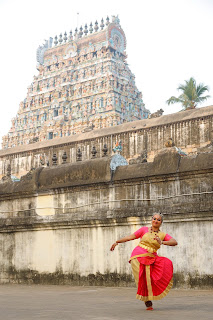Shinie Antony - writer, editor, novelist, and columnist, is the winner of the Commonwealth Short Story Asia Prize, co – founder of the Bangalore Literature Festival and has the dubious distinction of inflicting Chetan Bhagat on India. Her latest novels, Can’t and Eden Abandoned: The Story of Lilith were released this year. In a freewheeling chat, this wordsmith is every bit as witty and wicked as the fierce ‘fallen woman’ from her tales.
1. Most authors hereabouts are jealous that you have managed the incredible feat of releasing two exquisitely crafted novels back-to-back, especially since AI has prompted many a writer to throw in the towel. How did you pull this off?
It was emotional crafting vs. ‘thinking up’. With Lilith I had readymade texts to refer from: Gilgamesh to Talmud, Ben Sira, Genesis 1, Hebrew Bible, George MacDonald… Lilith told her own story, I was like a stenographer taking it down. With Can't I was on my own. I thought both Nena and Tata up, what they wore, what they spoke, their quirks, eccentricities, back stories. Writing Can't was a more complex and conscious process. Lilith happened on its own.
2. Can’t features a woman in her seventies traipsing off into the unknown with a seventeen-year-old, on a quest to track down her husband’s illicit bed mates. What is it about straying spouses and incompetent lovers that unleashes the rabid beast within?
Gender equations are lopsided. We are all going by that one old sepia portrait of womanhood hanging on a peeling wall in a mouldy haveli somewhere. In The Girl Who Couldn’t Love, Rudrakshi looks on from the other side. She will dump a man before he dumps her.
3. In your subversive take on Lilith, the original witch and ‘something which rhymes with it’ from the Bible, lasciviousness is rendered luscious while depravity is downright delicious. What drew you to Lilith, reimagining her as an indomitable force of nature, who refused to surrender, not even on pain of spiritual death and worse?
Like all mythological vamps, Lilith is bold. She has this dangerous beauty that lures men to their doom, and she snacks on little babies. Middle-aged women are proverbially considered invisible. After forty, they say, poof, you’re gone, you no longer exist. Male anger is celebrated, made much of. It is macho and presumed protective. ‘Angry woman’ is supposed to be an oxymoron – even the way we laugh is prescribed in the syllabus: softly, without noise, into your fist etc. if you must be so vulgar as to laugh at all. But this is the thing, ageing is a superpower. Being single is a superpower. Not having kids is a superpower. Female anger is a thing of beauty. An articulate woman in a temper is a work of art.
4. Nena from Can’t as well as Lilith are dealing with the nuclear fallout of a failed relationship. Previously, you wrote about the Girl Who Couldn’t Love. Have you declared war on coupling since most swear by marriage and love despite the damning evidence on hand?
Both books are about female resurrection. Women resurrect all the time. Life leaves them for dead – and each time they are like I’m here, still here. Female foeticide, infanticide by midwives with salt in their fists, honour killing, dowry deaths, widows thrown wherever. As a nation we don't know where to dump our garbage, but we always knew where to dump widows... The planet is divided not into men and women – we are the animal kingdom, after all – but into the powerful and the powerless, predator and prey. If women go take a nap the sati system will be back.
5. What do you think is stopping women from channelling feminine rage and agency to live life on their own terms without having to live in mortal terror of consequences?
Women stop themselves, because they buy into the rumours about themselves. They want to conform and toe the line, do the done thing, say the said thing. But one day they get it. And then heaven help Earth!
An edited version of this interview was published in TNIE magazine.





